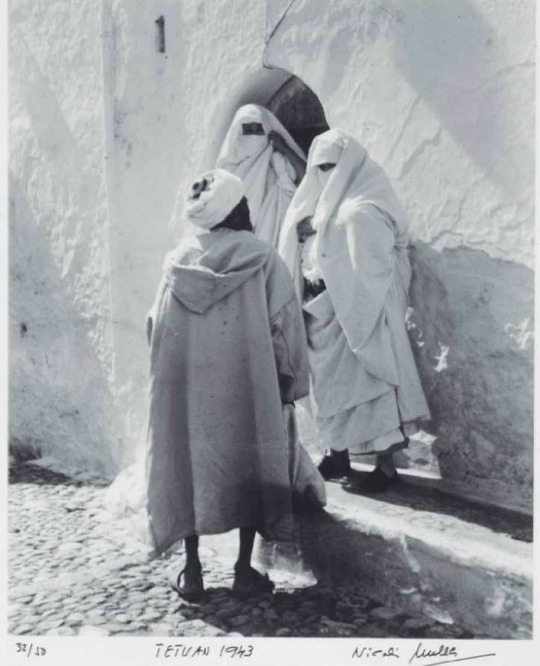#islamic world
Text

#quotes#love#poem#poetry#literature#convert to islam#islamic world#islamicquotes#islam#muslim#prophet mohammed
3K notes
·
View notes
Text

Eyy İsrail; Her devrin bir Nemrutu, Firavunu varsa Yusufları da vardır unutmayasın..
🤲🏻 🇹🇷 🗡️
24 notes
·
View notes
Text
"No other religion in history spread so rapidly as Islam . . . The West has widely believed that this surge of religion was made possible by the sword. But no modern scholar accepts that idea, and the Qur'an is explicit in support of the freedom of conscience."
James A. Michener (1907 - 1997) - Leading American writer; recipient of honorary doctorates in five fields from thirty leading universities and decorated with the Presidential Medal of freedom, America's highest civilian award.
Citation: [Islam - The Misunderstood Religion, Readers' Digest (American Edition) May 1955]
#islam#quran#muslim#allah#muhammad#history#mecca#medina#saudi arabia#middle east#jerusalem#palestine#muslim world#islamic world
18 notes
·
View notes
Text

A'lâ Sûresi
Mekke’de nâzil olmuştur. 19 âyettir. İsmini, Allah Teâlâ’nın birinci âyette geçen ve “en yüce, en üstün” mânasına gelen اَلْاَعْلٰى (A‘lâ) adından alır. Mushaf tertîbine göre 88, iniş sırasına göre 8. sûredir.
Konusu
Cenab-ı Hakkın her türlü kusurdan, beşeri sıfatlardan ve yakışıksız isnatlardan tenzih edilmesinin gereği vurgulanır. Sonra da kullar için hazırlanan maddi ve mânevî nimetlerden bahsedilerek kâfirler imana, nankörler şükre davet edilir. İslâm davetinin kabul görüp yayılacağı ve mü’minlerin yakın zamanda başarıya erişeceği müjdesi verilir.
Fazileti
Peygamberimiz (s.a.s.) A’lâ sûresini çok severdi. Vitir namazında çoğunlukla birinci rekatta bu sûreyi, ikinci rekatta Kâfirûn sûresini üçüncü rekatta ise İhlâs ve Muavvizeteyn’i okurdu. Bayram ve Cuma namazlarında da bu sûreyi sık sık okudukları rivayet edilir. (Ebû Dâvûd, Vitr 4; Tirmizî, Vitr 9)
#aquarium#starfish#fishes#sealife#fish#sea creatures#fishing#galveston#carp#pierlife#dock#pier#islamic#islam#prophet muhammad#holy quran#ramadan#muslims#islamic world#islamicreminders#islamicstudies#islamic terrorism#islamic advice
311 notes
·
View notes
Note
You said you read a lot about Arabia and Islam and I have a random question that you might be able to help with. I know that for centuries there was a caliph who was like the leader of muslims and I always wondered why if the king of saudi arabia is in charge of the holy sites why isn't he considered the caliph or declared himself as the caliph?
It's a good question and there are a number of complex reasons why that didn't/doesn't happen which require a much deeper dive, but I'll try to give a simplified answer. First of all, the caliph was the spiritual leader of the entire Muslim world and while the caliphs also had a political role as successors to Muhammad, that role changed dramatically through the centuries as the Muslim world grew, Islamic empires rose and fell, and Islam itself branched into different sects. The last widely-recognized caliphs were the Sultans of the Ottoman Empire, but even in the last decades of the Ottoman Empire, there were disagreements throughout the Muslim world about the legitimacy of anyone's claim on the caliphate. The two main branches of Islam -- Sunni and Shia -- have entirely different ideas on how a caliph should be chosen and who the caliph is chosen by.
When the Ottoman Empire collapsed after the end of World War I, the Sharif of Mecca -- Hussein, a direct descendant of Muhammad as the leader of Hashemite dynasty (and great-great grandfather of the current Jordanian King Abdullah II) -- attempted to declare himself the new caliph, but was not accepted. In many ways, it was like a modern European monarch suddenly declaring himself the Pope; that's just not how most Muslims believed the spiritual leader of the Islamic faith should be determined. Plus, Hussein only had a tenuous hold on Islam's holiest sites (Mecca, Medina, and, at the time, Jerusalem) following World War I, and Abdul Aziz Ibn Saud was in the process of taking control of what is now Saudi Arabia. Once Ibn Saud became King of Saudi Arabia, he took over as "Custodian of the Two Holy Mosques" (Mecca and Medina), but the idea of declaring himself caliph was out of the question. Ibn Saud and the vast majority of his supporters were members of the deeply conservative, puritanical Wahhabi sect of Sunni Islam and they believed that the caliph was chosen by all Muslims, not declared by one person. As the guardian of Islam's two holiest sites, the King of Saudi Arabia is responsible for ensuring that all Muslims capable of making the Hajj pilgrimage to Mecca (and the lesser pilgrimage to Medina) can do so. Unilaterally declaring himself the caliph would undoubtedly have alienated many Muslims, particularly those from countries outside of Saudi Arabia and especially Shiites. In other words, it's not within the power of the King of Saudi Arabia to give himself (or any other individual) the title of caliph, and he'd probably get just as much resistance from his fellow Saudis if he tried to do so. There's no way that the Ikhwan -- the ascetic tribes and Bedouins who largely acted as Ibn Saud's military forces as he conquered most of the Arabian Peninsula in the first half of the 20th Century -- would have remained loyal to the first Saudi King if he had unilaterally proclaimed himself the caliph.
The Muslim people around the world -- the ummah -- haven't been united since the death of Muhammad, which is when the divide between Shia and Sunnis began over the true successor of the Prophet, so any caliph is going to be seen as illegitimate by a significant percentage of the population. And in the modern world, any political aspects of a potential caliph are going to be superseded by the temporal responsibilities of the heads of state or heads of government in every country, no matter how large or devout their Islamic population might be. So, a modern caliph would really have to be a spiritual leader, not a political one -- very similar to the Pope. But the Pope also has the unique position of being the head of state (and, really, an absolute monarch) of a sovereign nation. The Islamic world is too fragmented and divided by opposing theologies to allow a modern-day caliph to govern, command military forces, and provide religious guidance in the same manner as Muhammad's immediate successors or even during the 600+ years of Ottoman Sultans. A caliph would effectively have the same standing today as a modern-day Doge of Venice or Japanese Shogun; it's an anachronistic position of leadership and somewhat outdated concept in the world we currently live in -- you know, like the Iowa Caucus or Electoral College.
#History#Politics#Political Leaders#Caliph#Caliphate#Islam#Muslims#Islamic world#Ummah#Saudi Arabia#Muhammad#Sunni-Shia Split#Shiites#Sunnis#Ottoman Empire#Ottoman Sultans#King of Saudi Arabia#Custodian of the Two Holy Mosques
9 notes
·
View notes
Text
A Barbaric Hindu Terrorist

#islam#islamophobia#photography#hinduism#india#hindutva#bjp#bjpnews#bjp government#modi#narendra modi#Terrorism#Terror#Hindu terror#Hindu terrorism#crimes against humanity#crimes against children#crimes against women#discrimination#oppression#Hate crimes#muslim ummah#ummah#one ummah#War on islam#islamic world#muslim world#history#world history#global history
3 notes
·
View notes
Text

"Moroccan Women in Haik", Tetuan, Morocco, archive picture by Nicolas Muller, 1943
#Morocco#Maroc#Moroccan#Moroccan Women#Moorish#Moorish Women#Vintage Morocco#Rif#Tetouan#Tetuan#Haik#Old Morocco#Africa#North Africa#Amazigh#Imazighen#Moors#Islamic World#Muslim World#Photography#Old Photography#Vintage#Fashion
15 notes
·
View notes
Text

فان مع العسر يسرا
So, verily, with every difficulty, there is relief
#islamic life#islamdaily#islamicquotes#muslim#islamic world#islamic group#muslim quotes#islamic aesthetic#muslim aesthetic#allah is kabir
27 notes
·
View notes
Text
poll - about my map of the islamic world
4 notes
·
View notes
Text
Ibn al-Qayyim (رحمه الله) said:
“Shaykh Ibn Taymiyyah (رحمه الله) would search a lot to find people to help them with their needs. This was because he knew that every time he helped someone then Allāh would aid him.” إن شاء الله
#life quote tumblr#text blog#wordsofwisdom#quotes#islamic knowledge#allah#islamic life#islamdaily#islamic world#islamic#muslim#muslims#muslimah#islam#prophet muhammed pbuh#muslimscholars#islamicpost#islamicquotes#islamicreminders#hijab#deen
53 notes
·
View notes
Text

This beautiful ceiling of Shah Mosque, Esfahan in Iran.
#mosque#masjid#art#artists on tumblr#artwork#art style#drawings#amazing#islamicquotes#islamic world#islam#iran
2K notes
·
View notes
Text
The story of a milk seller who became immortal in history …

After the fall of the Ottoman Caliphate, French forces invaded various parts of southern Turkey. At that time all the women of that region used to wear burqa. One day, on the way, a French general saw some women walking, he said
-Your state has fallen, and now you are under Western rule, so take off your hijab.
When the women refused the order, the general laid his hands on them to remove the hijab.
Nearby, a Turkish Muslim named Imam Sutju was selling milk. This incident hurt her Muslim identity and stirred up the Islamic society's respect for women. He immediately pulled a gun from the general's sheath and killed him in the blink of an eye.
Immediately after this incident, the French expulsion movement from the region gained momentum. The intoxication of liberation burns like wildfire in the public sphere. As a result, in 1923, the town of Kaharman was liberated from French occupation.
The story of this heroic anecdote is still taught in the madrasas of those regions.
-Collected
#srkshazu#muslim ummah#Imam Sutju#srkshaju#islamic world#islamic quotes#islamic history#hijab ban#hijabstyle#hijabootd#hijab model#hijabers#muslimah#muslims#islamic#islam
7 notes
·
View notes
Text
Sevdiğin kimseyi ölçülü sev, zira birgün ondan nefret edebilirsin. Kızdığın kimseye de ölçülü kız ki, zira birgün onu sevebilirsin.
Tirmizi /60
Seyyid Abdullahım El-Hüseyni

24 notes
·
View notes
Text
🤍✨
#quran#islamic life#quranverses#quran pak#qurani ayaat#quranquotes#motivational quotes#inspirational quotes#quran translation#holy quran#qurandaily#islamic videos#islamicreminders#love#islamic world
7 notes
·
View notes
Text
Kadir Geceniz Mübarek Olsun 🌙
#islam#kadirgecesi#ramazan#dua#müslüman#islamic world#27th#duygular#huzur#arınma#şefaat#saf sevgi#saygı#mutluluk#bitmissinniremm
17 notes
·
View notes